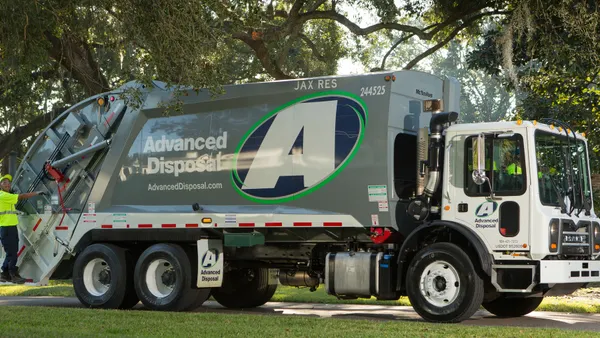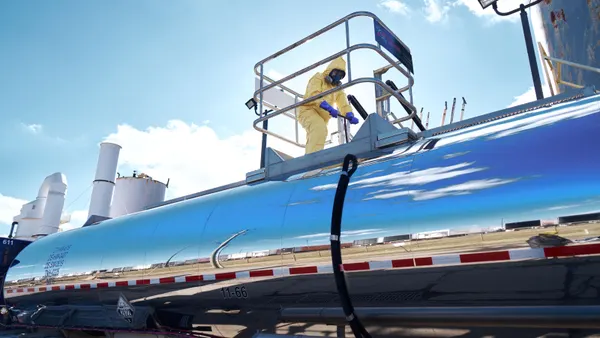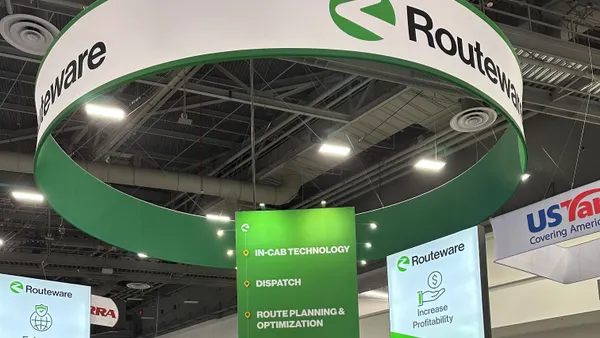UPDATE: Oct. 2, 2018: Peter Butler's lawsuit was dismissed by a Ramsey County District Court judge on Oct. 1, according to the Pioneer Press. The judge ruled that Minnesota's Waste Management Act doesn't specify any details about per-gallon pricing and thus doesn't apply. Butler said he plans to appeal the decision.
Dive Brief:
- Former city financial analyst Peter Butler is suing St. Paul, Minnesota over the pricing structure for the new organized trash collection system that will go into effect on October 1, according to the Star Tribune and others.
- Butler claims that the four available options will significantly discount service for residents who generate the most waste on a per-gallon, per-collection basis. He estimates the smallest trash collection option costs 27 cents per gallon, whereas the largest costs only 8 cents per gallon.
- In his view, this violates Minnesota's Waste Management Act, which sets goals for reducing waste and increasing recycling.
Dive Insight:
St. Paul approved its new organized trash collection system late last year in an attempt to boost efficiency. Currently, residents choose their own haulers, but those haulers don't work in a designated area so several of them might service a single block on the same day, and sometimes multiple days a week. Under the new plan, 15 haulers will work in designated areas.
Butler's lawsuit doesn't dispute the merit of switching to a franchised collection system, just the pricing structure and the perceived lack of incentivizing waste reduction. At first glance, the monthly pricing appears to increase if residents choose larger collection bins. But the lawsuit digs deeper into the size of the bins, breaking the four options down by gallon and also the frequency of trash pick-up.
That's where Butler sees trouble with the plan. His lawsuit notes that the state requires a base unit price and rates that increase as trash generation increases, which is intended to make residents conscious of how much trash they dispose of and perhaps change their behaviors. St. Paul's structure does not appear to be in line with this state goal.
The city also revamped its recycling program structure a few years ago and 2017 was the first full year under the new contract. St. Paul saw a 13% increase in recyclables tonnage collected from 2016 to 2017, and a diversion rate of about 24% in 2017. It's possible that the the new trash collection plan could affect those numbers when it goes into effect later this year if Butler's theories are correct.










